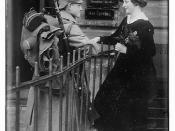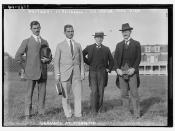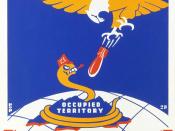War, What is it Good For?
In the statement made by Richard Henry Tawney, on page 216 in The Dream of Civilized Warfare , relates to the reader sentiments of how propaganda during World War One was reacted to by the public, or it could be read as the government's position not allowing the public accurate information to make their own conclusions. However more powerful to the indictment of the public is his notion that propaganda did not wipe out all modes of thought; it simply controlled and encouraged the dominant ideas that the bureaucratic leaders fed the public via propaganda. He felt that it was the public not wanting to know truths; instead would rather have a 'candy cane' version of reality where truths were lies and lies truths (Robertson pp 217). I feel that Tawney's indictment of the public is not justifiable for this time period. Previously to this war the public was not aware of the effects of propaganda administered on such a massive scale.
The public was never peppered with all these different forms of mass media, all promoting the same message, all the time about the enemy.
Because this war was the first war waged with the use of technology, such as radio, cinema, newspapers and others the public was not aware to effects that these all play in coherence with the same message. When the public hears lies that all Germans are rapists from all these media outlets, with close to the same message they adopt the same beliefs that the media is representing to them. The American way of life, liberty, and the due process of law is challenged by the media blitz promoting the unfettering freedoms in Europe due to the assumed evil Hun.
The imagery of propaganda posters was appealing...


